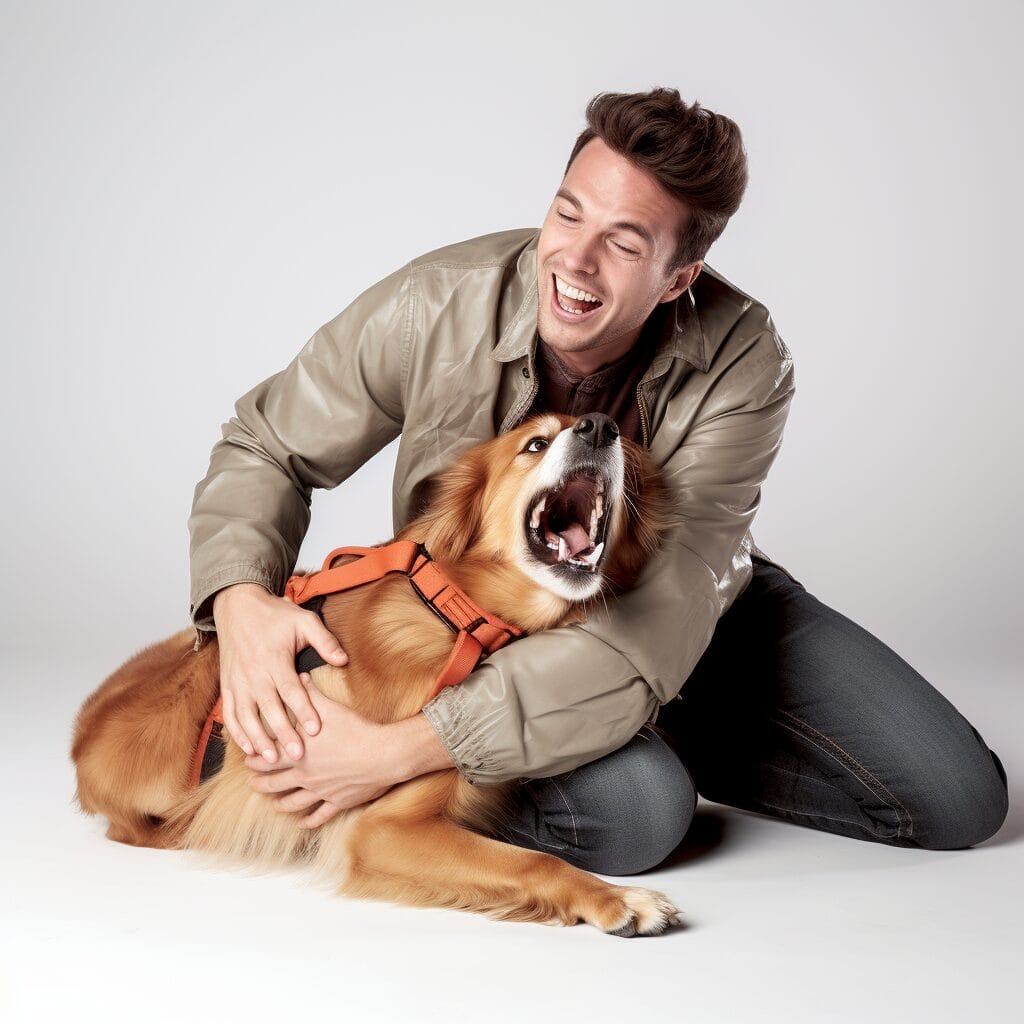Your complete guide to first-year puppy vaccinations is essential for the health and well-being of young puppies. It is especially important for unvaccinated dogs to receive these vaccinations to protect them from potential diseases. Regular visits to vets are crucial in ensuring that infected dogs receive proper medical attention. Understanding the significance of vaccinating young puppies against canine parvovirus empowers you to make informed decisions in safeguarding their health. Vets recommend vaccinating young puppies to protect them from this highly contagious and potentially deadly virus that can be spread by infected dogs. This section offers a comprehensive overview, equipping you with the knowledge needed to ensure your puppy receives the necessary care from vets. It’s important to be aware of the risks of canine influenza and take appropriate measures to protect your puppy from infection. The AKC recommends staying informed about the latest developments in preventing and treating canine influenza in order to keep your pup safe and healthy.
Your Complete Guide to First-Year Puppy Vaccinations
Understanding the Puppy Vaccination Schedule

Importance of the Vaccine Schedule
The vaccination schedule for new puppies is a crucial aspect of responsible pet ownership. Ensuring that your puppy receives the necessary puppy vaccines, such as year puppy shots, is essential. It is recommended to consult with vets to determine the appropriate vaccination schedule for your new puppy. Puppy vaccines involve a series of shots given at specific intervals to provide essential protection against various diseases. These doses are crucial for your animal’s health, and include both core and noncore vaccines. Following the recommended vaccine schedule ensures that your puppy receives the necessary immunity from the vet to stay healthy and safeguarded from potentially life-threatening illnesses. It is important to administer the correct dose of shot to your dogs. These dog vaccines are designed to prevent fatal diseases such as parvovirus, distemper, hepatitis, and rabies, which can be contracted by an unvaccinated puppy with a single shot or dose of water.
Ensuring that your dogs follow the prescribed vaccination dose schedule is vital in protecting them during their vulnerable early months. Don’t forget to provide them with plenty of fresh water to keep them hydrated. Puppies are born with some immunity from their mother’s milk, but this protection diminishes over time. It is important to ensure that dogs receive their year puppy shots to boost their immunity. Additionally, it is crucial to monitor their access to water to keep them hydrated and healthy. Therefore, timely vaccinations help bridge this gap and strengthen their immune system against prevalent diseases like year puppy shots in dogs. For instance, the initial round of puppy shots typically begins when dogs are around six to eight weeks old and continues every three to four weeks until they reach 16 weeks of age.
Regularly following the puppy vaccination schedule not only protects your pet but also contributes to public health by preventing outbreaks of contagious diseases within communities where dogs interact with one another.
Stages of Vaccination Schedule
The puppy vaccination schedule for dogs consists of several stages that correspond with different developmental milestones in a young dog’s life. The primary stage includes core vaccines for dogs, such as those for distemper, parvovirus, adenovirus-2 (hepatitis), and rabies. These initial shots aim to establish strong immunity against common viral infections that pose significant risks to dogs, especially puppies.
Subsequently, booster shots for dogs become essential parts of the vaccine schedule, ensuring that your puppy’s immune response remains robust as they grow into adulthood. Booster doses help dogs reinforce their defenses against infectious agents by reminding their bodies how to fight off particular pathogens effectively.
For example:
- At around 12-16 weeks old, your dogs will receive boosters for core vaccines.
- Around 12 months: A booster shot for dogs may be required depending on local regulations or recommendations from veterinarians. The booster shot specifically targets rabies.
Core vs. Non-core Puppy Vaccinations Comparison

Understanding Core Vaccines
Core vaccines are crucial for protecting dogs, including puppies, against common and potentially life-threatening diseases. These vaccinations are considered essential for all dogs, regardless of their lifestyle or geographic location. Diseases like rabies, parvovirus, distemper, adenovirus, and other diseases that affect dogs fall under the category of core vaccines.
Core vaccines for dogs are essential in preventing fatal illnesses in puppies. For instance, parvovirus is highly contagious in dogs and can lead to severe vomiting, diarrhea, dehydration, and even death in untreated cases. Similarly, distemper affects multiple organ systems and poses a significant risk to unvaccinated puppies, especially dogs.
Core vaccines provide comprehensive protection against diseases that pose a significant threat to the health and well-being of puppies, including the dog. By ensuring that your dog receives these essential vaccinations on schedule according to your veterinarian’s recommendations, you can significantly reduce the risk of them contracting these dangerous illnesses.
Exploring Non-core Vaccines
On the other hand, non-core vaccines for dogs are optional vaccinations that may be recommended based on factors such as lifestyle and geographic location. Examples of non-core vaccinations for dogs include those for Bordetella bronchiseptica (kennel cough), Lyme disease, Leptospira bacteria (leptospirosis), and canine influenza virus.
Non-core vaccines become more relevant when considering specific circumstances such as regular exposure to other dogs in boarding facilities or dog parks where there’s an increased risk of contracting kennel cough or leptospirosis due to shared spaces with unfamiliar animals.
While not universally required for all puppies like core dog vaccines are, noncore dog vaccinations should still be carefully considered based on individual risk factors associated with a puppy’s dog environment or dog activities they engage in regularly.
Essential First-Year Puppy Vaccinations and Their Schedule

Recommended Vaccines
The year puppy shots are essential for all puppies in their first year of life, protecting them against diseases like distemper, hepatitis, parvovirus, rabies, and other dog-related illnesses. These dog vaccines are crucial in safeguarding the health and well-being of your new pet. The dog vaccination schedule is designed to provide immunity to puppies at a time when dogs are most vulnerable to these diseases.
For example, the American Kennel Club (AKC) recommends a series of dog vaccinations starting at around 6-8 weeks of age. This initial round typically includes vaccines for distemper, parvovirus, adenovirus-2 (hepatitis), parainfluenza, and dog. Dog boosters for these core vaccines will be administered every 3-4 weeks until the dog reaches 16 weeks old.
Following this primary series, additional non-core vaccinations may be recommended based on factors such as geographic location, lifestyle factors like frequent visits to dog parks or travel to tick-prone areas or states.
Corresponding Schedule
The dog puppy vaccination schedule outlines the timing for each dog vaccine administration throughout the first dog year. For instance:
- At around 12 weeks old, it may be necessary to give a Bordetella bronchiseptica (kennel cough) vaccine to your dog if needed.
- Around 14–16 weeks old: The dog Lyme disease vaccine might be recommended depending on your location.
- Between 12–16 months old, a dog should receive the rabies vaccine as required by law.
It’s important to note that while some non-core dog vaccinations may not be necessary for all puppies due to varying lifestyle factors and geographical considerations, they can provide valuable protection in specific situations.
In addition to understanding which vaccines are essential for a dog during its first year of life, it’s equally vital for dog owners to comprehend their local regulations regarding mandatory rabies vaccinations and how frequently they should occur. By staying informed about both core and non-core puppy vaccination schedules, dog parents can ensure their furry companions receive comprehensive protection against preventable diseases without unnecessary over-vaccination.
Understanding Canine Distemper, Hepatitis, and Parvovirus in Puppies

Canine Distemper
Canine distemper is a highly contagious viral infection that affects a dog’s respiratory, gastrointestinal, and nervous systems. Symptoms in a dog may include fever, nasal discharge, coughing, lethargy, and neurological signs like seizures. Without vaccination protection against distemper, puppies are at risk of severe illness or even death if they come into contact with an infected dog.
Canine distemper can be transmitted through airborne exposure to respiratory secretions from infected dogs. This means that even brief contact between a healthy puppy and an infected dog can lead to the spread of the virus. Vaccination against canine distemper is essential for preventing this potentially fatal disease in puppies. It is crucial to ensure that your dog receives the necessary vaccinations to protect them from this disease.
Canine Hepatitis
Hepatitis in dogs is caused by canine adenovirus type 1 (CAV-1) and primarily affects the liver. Symptoms in a dog may include fever, abdominal pain, vomiting, diarrhea with blood, jaundice (yellowing of the eyes), and fluid accumulation in the abdomen. In severe cases, liver failure or death can occur in dogs.
Similar to canine distemper virus transmission methods; hepatitis spreads through contact with urine or other bodily fluids from infected dogs. Given its severity and potential fatality for unvaccinated puppies exposed to an infected dog’s bodily fluids containing CAV-1; vaccination becomes crucial for protecting them from this dangerous disease.
Canine Parvovirus
Canine parvovirus causes a highly contagious intestinal illness in dogs characterized by vomiting, diarrhea (often bloody), weight loss, lack of appetite, fever, lethargy, and dehydration leading to shock or death without prompt treatment. The virus spreads through direct contact with an infected dog’s feces as well as contaminated objects such as food bowls or bedding.
Puppies, especially young ones, are particularly vulnerable to infections including parvovirus. Their immune systems are not fully developed until about six weeks old, leaving them susceptible to illnesses. Timely vaccinations for dogs are critical for safeguarding their health, as maternal antibodies wane during this period.
Importance and Benefits of Rabies Vaccination for Puppies

Protecting Against a Deadly Disease
Rabies is a deadly disease that affects both animals and humans. It is caused by a virus that attacks the central nervous system, leading to brain disease and death. When puppies are not vaccinated against rabies, they are at risk of contracting this fatal illness if they come into contact with an infected animal. This vaccination is crucial because it provides protection against the rabies virus, ensuring the puppy’s safety and well-being.
Vaccinating puppies against rabies not only protects them but also helps prevent the spread of this dangerous virus within their community. By receiving the rabies vaccine, puppies develop immunity to the virus, reducing their chances of contracting or transmitting it to other animals or humans. As such, vaccinating your puppy plays a vital role in safeguarding public health and safety by minimizing the risk of rabies transmission.
Public Safety Measures
In many regions around the world, including North America and Europe, there are laws mandating rabies vaccinations for dogs due to its potential threat to human health. These regulations aim to control and eliminate instances of rabid animals that could pose serious risks to people’s lives. In some cases where unvaccinated pets have been exposed to wildlife carrying rabies, authorities may require euthanasia or strict quarantine measures for these pets as a precautionary measure.
The benefits extend beyond individual pet protection; when more dogs receive rabies vaccinations, it creates what is known as “herd immunity.” This means that with a higher percentage of vaccinated dogs in a community, there’s less chance for an outbreak among both pets and people. For instance, if wild animals carrying rabies bite vaccinated dogs rather than unvaccinated ones in an area with high vaccination rates, there’s significantly reduced risk for widespread transmission within that population.
Non-core Vaccines and Their Significance for Puppy Health

Individualized Protection
Non-core vaccines offer additional protection against specific diseases that may not be universally required. These vaccines are tailored to address individual risk factors, taking into account your puppy’s unique lifestyle, potential exposure, and geographic location.
For instance, if your puppy spends a lot of time in areas where ticks are prevalent, the Lyme disease vaccine might be recommended. Similarly, if you live in an area with a high prevalence of leptospirosis or frequent wildlife encounters, the non-core vaccine for leptospirosis could be essential to safeguard your puppy’s health.
These non-core vaccinations play a crucial role in providing individualized protection, ensuring that your furry friend is shielded from risks that are more pertinent to their specific circumstances.
Tailored Recommendations
The significance of non-core vaccines lies in their ability to tailor protection based on the unique needs and potential exposures of each puppy. Unlike core vaccines, which protect against widely prevalent and highly contagious diseases such as rabies or distemper virus, non-core vaccinations take into consideration the distinct environment and activities of your pet.
Deworming and Booster Shots in the First Year

Importance of Deworming
Deworming is crucial for eliminating internal parasites that can harm your puppy’s health. These parasites, such as roundworms, hookworms, and tapeworms, can cause serious health issues if left untreated. Puppies are often born with these parasites or may acquire them from their environment. Without proper deworming, these internal parasites can lead to malnutrition, stunted growth, anemia, and even more severe conditions.
Deworming should be initiated early in a puppy’s life to prevent any potential complications. It typically involves administering medication to eradicate existing parasites and prevent new infestations. Regular deworming treatment ensures that your puppy grows up healthy without being compromised by the harmful effects of internal parasites.
- Pros:
- Prevents potential health issues caused by internal parasites
- Ensures proper growth and development of the puppy
- Cons:
- Some puppies may experience mild side effects after deworming
Significance of Booster Shots
Booster shots play a vital role in strengthening a puppy’s immunity against various diseases. These additional doses of vaccines help reinforce the initial immune response elicited by the primary vaccination series. Since puppies have immature immune systems during their first year of life, booster shots are essential for providing long-term protection against infectious diseases such as parvovirus, distemper virus, adenovirus (hepatitis), parainfluenza virus, leptospirosis bacteria infection among others.
The timing and frequency of booster shots are critical to ensure optimal protection for your puppy. Missing or delaying booster vaccinations could leave your pet vulnerable to potentially fatal illnesses despite receiving primary vaccinations earlier on.
- Key Information:
- Booster shots are usually administered at specific intervals following the initial vaccine series.
- They help maintain protective immunity over time.
Cost Considerations and Saving Money on Puppy Vaccinations

Low-Cost Clinics
Finding low-cost clinics is a great way to save money on your puppy’s vaccinations. These clinics often provide vaccines at a fraction of the cost compared to regular veterinary offices. Many low-cost clinics are run by non-profit organizations or government agencies, aiming to make pet care more accessible for all owners. By utilizing these services, you can ensure that your puppy receives the necessary vaccinations without breaking the bank.
Low-cost clinics may also offer vaccination packages, which can further reduce expenses. These packages typically include multiple vaccines at a discounted rate, helping you save even more money while ensuring comprehensive protection for your furry friend.
Seeking out low-cost options doesn’t mean compromising on quality. These clinics employ licensed veterinarians and adhere to standard vaccination protocols, so rest assured that your puppy will receive proper care without the high costs typically associated with veterinary services.
Pet Insurance Coverage
Investing in pet insurance can be a smart financial move. Some pet insurance plans cover preventive care, including vaccinations, making it easier for pet owners to budget for their puppy’s healthcare needs.
By enrolling in a pet insurance plan that includes coverage for vaccinations, you can effectively spread out the cost over time through monthly premiums rather than facing large upfront expenses during your puppy’s first year. This approach offers financial predictability and peace of mind knowing that essential preventive measures are financially manageable.
Furthermore, some pet insurance policies may also cover other aspects of veterinary care beyond vaccinations, such as illness and injury treatments. This broader coverage ensures comprehensive protection against unexpected medical expenses throughout your dog’s life.
In addition:
- Research different pet insurance providers.
- Compare coverage options and prices.
- Look into any exclusions or limitations in the policy.
- Consider factors like waiting periods before coverage kicks in.
Risks and Side Effects of Puppy Vaccines

Potential Risks
Puppy vaccinations, like any medical intervention, carry risk. While the majority of puppies will not experience severe side effects from vaccines, it’s important to be aware of potential risks. One common risk associated with puppy vaccines is an allergic reaction. This can manifest as symptoms such as swelling at the injection site, hives, or even difficulty breathing. In rare cases, a severe allergic reaction known as anaphylaxis can occur, leading to life-threatening symptoms like shock and collapse.
Another potential risk is the development of vaccine-related sarcomas in cats. Although this condition is extremely rare in dogs, it’s essential to be aware that there are some inherent risks associated with vaccinating your puppy.
Common Symptoms
It’s crucial for puppy owners to recognize common symptoms that may indicate a negative reaction to vaccinations. These may include fever, lethargy, decreased appetite, and localized swelling or tenderness at the injection site. If you notice any unusual behavior or physical changes in your puppy following vaccination, it’s important to consult your veterinarian promptly.
In addition to these general symptoms of discomfort post-vaccination which might be considered normal for some puppies but high-risk for others should also be noted by pet owners during their first-year vaccinations journey.
- Fever: A slightly elevated temperature after vaccination is relatively common and typically resolves within 24-48 hours.
- Lethargy: Some puppies may exhibit increased sleepiness or reduced activity levels following vaccination.
- Decreased Appetite: Your puppy might show less interest in food for a day or two after being vaccinated.
- Localized Swelling/Tenderness: It’s normal for the injection site to appear slightly swollen and tender immediately after receiving a vaccine.
Conclusion: Ensuring a Healthy Start for Your Puppy
In conclusion, ensuring a healthy start for your puppy involves adhering to a well-planned vaccination schedule, including both core and non-core vaccines. By understanding the significance of each vaccine, pet owners can make informed decisions to protect their puppy from potentially life-threatening diseases. Regular deworming and booster shots play a crucial role in maintaining your puppy’s overall health and well-being. It’s essential to consult with a veterinarian to tailor the vaccination plan according to your puppy’s individual needs and lifestyle.
For further details on specific vaccination protocols and personalized recommendations for your puppy, it is highly recommended to schedule a consultation with a qualified veterinarian. Taking proactive steps in vaccinating and safeguarding your puppy not only contributes to their long-term health but also fosters responsible pet ownership.
Frequently Asked Questions
What are core and non-core puppy vaccinations?
Core vaccinations protect against diseases that are widespread, highly contagious, and pose a risk to all puppies. Non-core vaccines are optional and depend on factors such as the puppy’s lifestyle and potential exposure to specific diseases.
When should I start vaccinating my puppy?
Puppy vaccination typically begins at 6-8 weeks of age. The initial series of vaccinations is given every 3-4 weeks until the puppy is around 16 weeks old. A booster shot may be necessary after one year.
What are the risks and side effects of puppy vaccines?
Potential side effects include mild fever, swelling at the injection site, or decreased appetite. Serious adverse reactions like anaphylaxis are rare but possible. It’s crucial to discuss any concerns with your veterinarian before proceeding with vaccinations.
How can I save money on my puppy’s vaccinations?
Some ways to save on vaccination costs include looking for low-cost clinics, considering pet insurance that covers preventive care, or asking your vet about package deals for multiple services like spaying/neutering along with vaccinations.
Why is rabies vaccination important for puppies?
Rabies is a fatal disease that can affect both animals and humans. Vaccinating puppies not only protects them from this deadly virus but also helps prevent its spread in communities while ensuring compliance with local laws.








